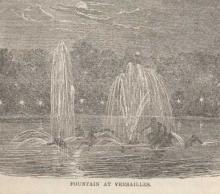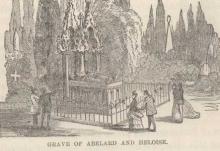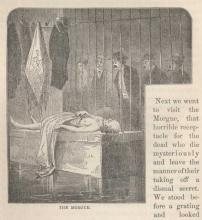The Innocents Abroad - Chapter 16

Twain is enraptured by Versailles. This is a rather interesting shift for Twain. Previously he has complained of the "worship of man" exhibited in the paintings of the "old masters" while here we have him waxing poetical over the works of man. He goes so far as to compare the gardens of Versailles with the Garden of Eden. It seems he even forgives the cost in human life it took to build the place.

